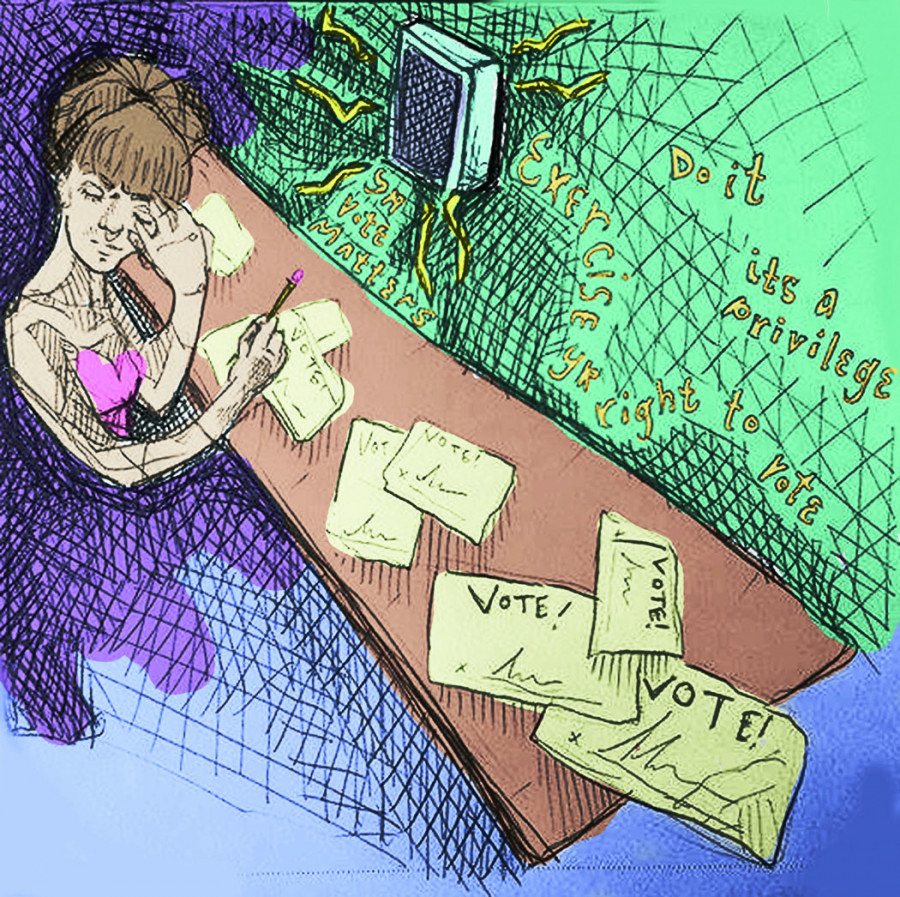Democratic Deficit Clouds Dreary Seventh Floor Dungeon
Trash rolls down the empty boulevard at a pace similar to the erosion of the dilapidated buildings overlooking the hungry students queuing for the local soup kitchen. As they mingle and bond over watered-down spuds, socializing over the issues of the day, one asks oneself: why would I even vote if my vote won’t make a difference?
I found this week’s Concordia Student Union election reminiscent of the 1788 U.S. presidential election where George Washington was elected unopposed, or the elections to the Soviet Duma in the 1980s where some of the seats featured more than one Communist Party candidate, and here’s why:
One-party states often hold elections for the sake of keeping up a pretence of democracy, of maintaining appearances. The lack of choice in these elections, however, renders the overall project a pointless, costly effort.
When I approached the desk on the ground floor of the Hall Building I was met by a friendly electoral attendant who, upon the electoral officers’ instruction, fumbled with my card before handing me my voting cards, which I was to fill out and then tuck into two oddly-sized envelopes.
I then perused the candidates on my cards, shocked that the majority of the positions were uncontested. This must be democracy in action, I thought to myself ruefully—the democracy of a one-party state.
That’s not to imply anybody intimidated me at the ballot box, though the attending security guard encouraged me to hurry up as he was late to finish his shift.
I mean, I’m sorry dude, but why do you even need to be here? To check that the two or three contested positions don’t get electorally challenged? To avoid malpractice? Was the CSU expecting an onrush of upset voters, bent on swaying the votes in three positions?
But besides the many posters, their omnipresent gaze like Dr. T. J. Eckleburg’s eyes, and Terry Wilkings’ five-minute speech in one of my classes, there has seemed to be—from my own experience, which I suppose is a little more engaged than your average JMSB student—absolutely no engagement of the CSU candidates with the wider student body.
Democracy is about merit, not surfing upon the coattails of the achievements of your predecessors. I’m told in previous years there was a greater choice of candidates, but this election simply reduced democracy to a tick box.
Hence why I abstained.
Whatever the reason, many of the CSU’s new bureaucrats can derive no democratic legitimacy from this election. Nevertheless, I wish them the best of luck—lest it denigrates into a kleptocracy, as many regimes have, after elections of this sort.





_600_375_90_s_c1.jpg)
_900_642_90_600_375_90_s_c1.jpg)